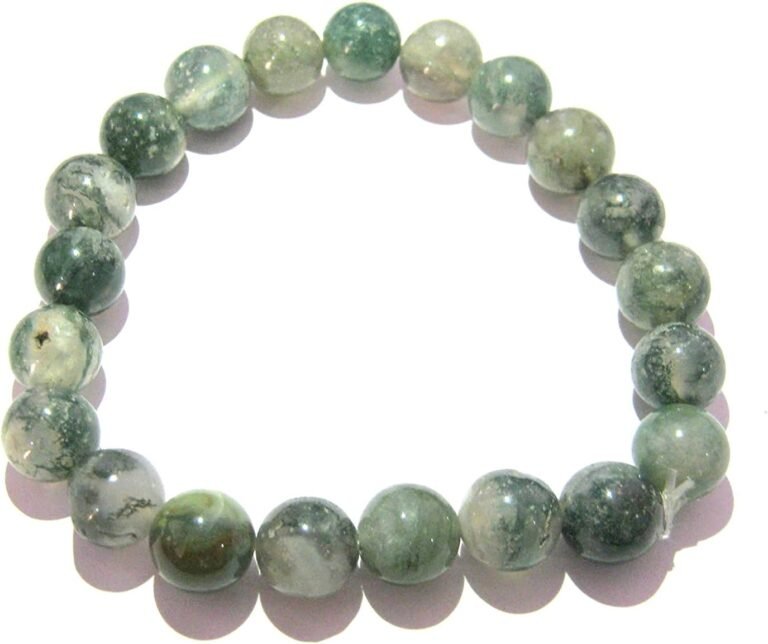Skincare Tips for Oily Skin
Maintaining healthy skin when dealing with excess oil can be a challenge, but with the right skincare routine, you can effectively manage oily skin. From choosing the correct cleanser to incorporating mattifying products, each step plays a crucial role in balancing your skin. However, there is one key aspect that often gets overlooked, and it can make a significant difference in your skincare journey.
Key Takeaways
- Use oil-free, salicylic acid or benzoyl peroxide cleansers twice daily.
- Opt for non-comedogenic, matte finish moisturizers with SPF.
- Exfoliate with salicylic or glycolic acid for smooth skin.
- Apply clay masks to minimize pores and reduce oil.
- Choose oil-free, matte makeup with long-wear formulas.
Cleansing Routine
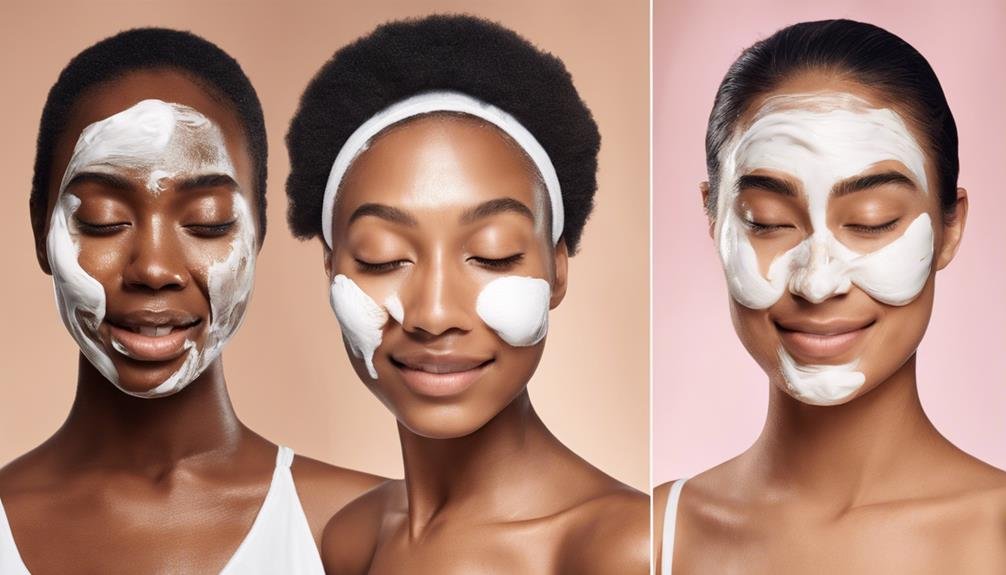
When managing oily skin, a consistent and effective cleansing routine is essential. Oily skin is characterized by excess sebum production, which can lead to clogged pores and acne breakouts. To combat these issues, it's crucial to cleanse your skin twice a day, in the morning and evening, using a gentle foaming cleanser specifically formulated for oily skin. Look for cleansers that contain ingredients like salicylic acid or benzoyl peroxide, known for their ability to unclog pores and reduce oiliness.
When washing your face, avoid using hot water as it can strip the skin of its natural oils, leading to increased sebum production. Instead, opt for lukewarm water to gently cleanse the skin without causing irritation.
After cleansing, pat your skin dry with a clean towel and follow up with a toner to further remove any residual dirt or oil.
Oil-Free Moisturizers
For individuals with oily skin, using oil-free moisturizers is crucial in maintaining a balanced and healthy complexion. Oily skin needs hydration just like any other skin type, but it's important to choose products that won't exacerbate the existing oiliness. Here are some key points to consider when selecting an oil-free moisturizer:
- Non-Comedogenic Formula: Look for moisturizers labeled as non-comedogenic to prevent clogged pores and breakouts.
- Matte Finish: Opt for products that provide a matte finish to help control excess shine throughout the day.
- Hydrating Ingredients: Seek out moisturizers with ingredients like hyaluronic acid or glycerin to hydrate the skin without adding extra oil.
- SPF Protection: Choose oil-free moisturizers with added SPF to protect your skin from harmful UV rays without clogging your pores.
Exfoliation Techniques
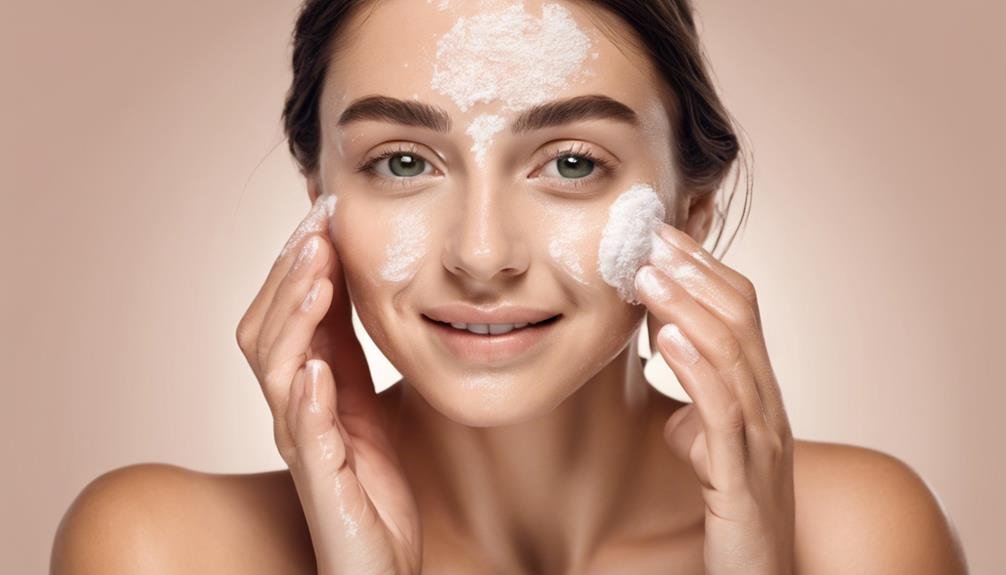
To effectively address oily skin concerns, incorporating proper exfoliation techniques into your skincare routine is essential. Exfoliation helps remove dead skin cells, excess oil, and impurities that can clog pores and lead to breakouts. For oily skin, it's recommended to exfoliate 2-3 times a week to maintain a clear complexion.
When choosing an exfoliator, opt for products with salicylic acid or glycolic acid, as these ingredients are effective in penetrating the pores and dissolving excess oil.
When exfoliating, gently massage the product onto damp skin using circular motions, focusing on areas prone to oiliness like the T-zone. Avoid scrubbing too harshly, as this can irritate the skin and stimulate more oil production.
After exfoliating, follow up with a lightweight, oil-free moisturizer to keep the skin hydrated without adding extra oil.
Regular exfoliation can help improve the texture of oily skin, reduce the appearance of enlarged pores, and prevent acne flare-ups. Remember to always patch-test new products and consult with a dermatologist if you have any concerns about your skincare routine.
Clay Masks
Clay masks are a beneficial addition to your skincare routine, particularly for managing oily skin. These masks work wonders in absorbing excess oil, unclogging pores, and leaving your skin feeling fresh and revitalized. Here's why you should consider incorporating clay masks into your skincare regimen:
- Deep Cleansing: Clay masks have the ability to penetrate deep into the pores, removing impurities and excess sebum that can lead to breakouts.
- Mattifying Effect: They help control oil production, keeping your skin looking matte and reducing that unwanted shine.
- Minimizes Pores: Regular use of clay masks can help minimize the appearance of enlarged pores, giving your skin a smoother texture.
- Soothing Properties: Many clay masks contain soothing ingredients that can calm inflammation and redness, making them a great option for those with oily, acne-prone skin.
Mattifying Primers
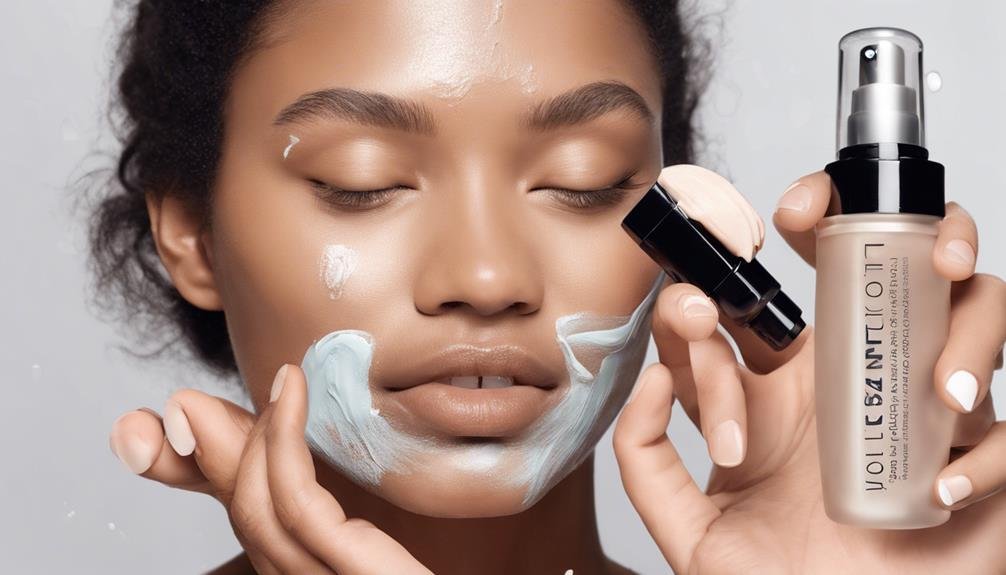
With their ability to create a smooth base for makeup application while controlling excess oil, mattifying primers are a valuable tool in the arsenal of those with oily skin. These primers work by absorbing oil throughout the day, helping to maintain a matte finish and prevent shine. By applying a mattifying primer before your makeup routine, you can ensure that your foundation stays in place and looks fresh for longer periods.
Look for mattifying primers that contain ingredients like silica, dimethicone, or salicylic acid, as these can help regulate oil production and blur the appearance of pores. When selecting a mattifying primer, opt for oil-free formulas to prevent clogged pores and breakouts.
To apply, simply smooth a small amount of the primer onto clean, moisturized skin before applying foundation. Focus on areas that tend to get oily, such as the T-zone. Remember, a little goes a long way with mattifying primers, so start with a small amount and build up if needed.
Balancing Toners
For those with oily skin seeking to restore balance and refine pores, incorporating balancing toners into your skincare routine can be highly beneficial. Balancing toners are specifically formulated to help control excess oil production and minimize the appearance of pores, leading to a more even complexion.
Here are some key benefits of using balancing toners:
- Regulates Oil Production: Balancing toners help to regulate sebum production, reducing shine and greasiness on your skin.
- Minimizes Pores: These toners work to refine the appearance of pores, giving your skin a smoother texture.
- Restores pH Balance: Balancing toners restore the skin's natural pH level, promoting a healthier skin barrier.
- Prepares Skin for Subsequent Skincare: By removing any leftover impurities after cleansing, balancing toners prepare your skin to better absorb the following skincare products.
Incorporating a balancing toner into your daily routine can help you achieve a more balanced and radiant complexion.
SPF Protection

Ensuring your skin is adequately shielded from the sun's harmful UV rays is crucial for maintaining its health and youthfulness. For oily skin, it's essential to choose a sunscreen that's oil-free and non-comedogenic to prevent clogged pores and breakouts. Look for a broad-spectrum SPF of 30 or higher to protect against both UVA and UVB rays. Applying sunscreen as the final step in your skincare routine, at least 15 minutes before sun exposure, is key to its effectiveness.
Opt for lightweight, gel-based sunscreens that won't feel heavy or greasy on your skin. Reapply sunscreen every two hours, especially if you're outdoors or sweating. Consider using a mattifying sunscreen to control excess oil production throughout the day.
Spot Treatments
How do you effectively tackle pesky blemishes and breakouts on your oily skin? Spot treatments can be your best friend in combating these issues. Here are some tips to help you choose and use spot treatments wisely:
- Look for ingredients like benzoyl peroxide or salicylic acid: These are effective in targeting acne-causing bacteria and unclogging pores.
- Apply a small amount directly on the blemish: Avoid spreading the product on unaffected areas to prevent drying out your skin unnecessarily.
- Use spot treatments as a targeted solution: They're meant to be applied only on active blemishes, not as an all-over treatment.
- Be consistent but gentle: Apply the spot treatment as directed, but don't overdo it. Overapplication can lead to irritation and dryness.
Hydration Tips
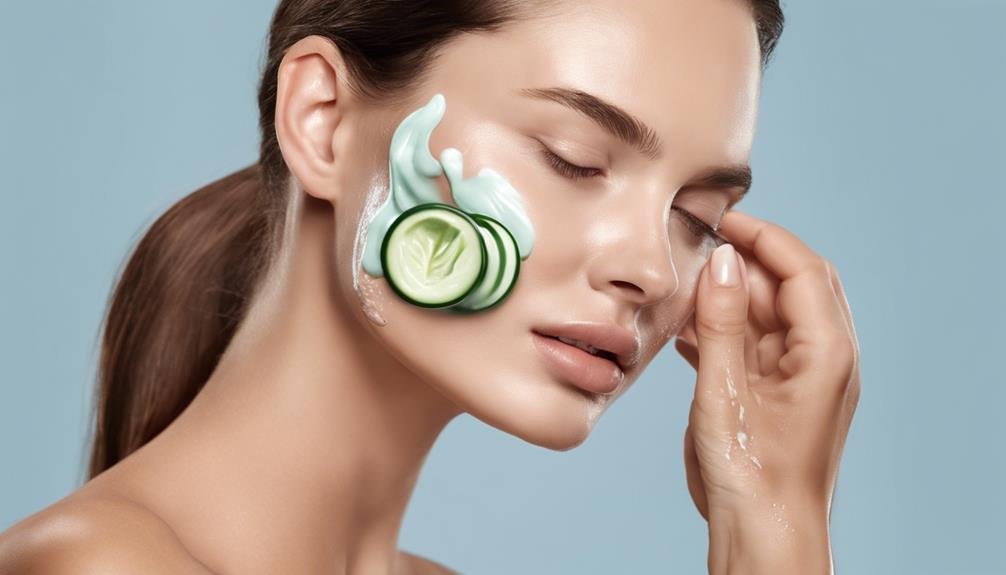
To maintain balanced and healthy skin, proper hydration is key, especially for those with oily skin. While it may seem counterintuitive, oily skin still needs hydration to stay healthy. Opt for lightweight, oil-free moisturizers that provide the necessary hydration without adding extra oil to your skin. Look for ingredients like hyaluronic acid or glycerin, which are hydrating without being heavy.
In addition to using a suitable moisturizer, consider incorporating a hydrating serum into your skincare routine. Serums are lightweight and can penetrate deeper into the skin, providing a boost of hydration without clogging pores.
Hydrating masks can also be beneficial, but be sure to choose ones specifically formulated for oily skin to avoid exacerbating oiliness.
Remember to drink an adequate amount of water throughout the day to keep your skin hydrated from the inside out. Dehydration can actually trigger your skin to produce more oil, so staying hydrated can help maintain a more balanced complexion. By prioritizing hydration in your skincare routine, you can help keep oily skin in check and promote a healthy glow.
Dietary Considerations
Considering the impact of your diet on your skin can be crucial in managing oily skin. What you eat plays a significant role in the health of your skin. Here are some dietary considerations to keep in mind:
- Stay Hydrated: Drinking an adequate amount of water helps flush out toxins and keeps your skin hydrated, reducing the production of excess oil.
- Eat Antioxidant-Rich Foods: Incorporating fruits and vegetables high in antioxidants can help combat inflammation and oxidative stress, factors that can contribute to oily skin.
- Limit Sugary and Processed Foods: Foods high in sugar and processed carbohydrates can lead to spikes in insulin levels, which may trigger the overproduction of oil in your skin.
- Include Omega-3 Fatty Acids: Omega-3 fatty acids found in foods like fatty fish, flaxseeds, and walnuts have anti-inflammatory properties that can benefit oily skin by regulating oil production.
Being mindful of what you eat can complement your skincare routine and contribute to a healthier complexion.
Makeup for Oily Skin

Managing oily skin goes beyond skincare routines and dietary choices; it also involves selecting the right makeup products that can help control excess oil and maintain a matte finish throughout the day.
When choosing makeup for oily skin, opt for oil-free and non-comedogenic formulas. Look for products labeled as "matte," "oil-control," or "long-wear" to help combat shine. Consider using a mattifying primer before applying foundation to create a smooth base and prolong makeup wear.
Powder foundations or mineral foundations are great options for oily skin as they help absorb excess oil. Throughout the day, keep oil-absorbing sheets handy to blot away any shine without disturbing your makeup.
Avoid heavy cream-based products and instead go for lightweight, water-based formulas. Setting your makeup with a translucent powder can help lock everything in place and prevent oil breakthrough.
Professional Consultation
Seeking a professional consultation for your oily skin concerns can provide valuable insights and personalized recommendations tailored to your specific needs. Here's why scheduling a consultation with a skincare specialist is crucial:
- Customized Skincare Routine: A professional can assess your skin type and create a tailored skincare regimen that targets excess oil production.
- Treatment Options: Receive expert advice on treatments such as chemical peels or laser therapies that can help manage oily skin.
- Product Recommendations: Get personalized product recommendations, including cleansers, moisturizers, and sunscreens suitable for oily skin.
- Long-Term Skin Health: Professionals can guide you on maintaining a healthy skin barrier and preventing future skin issues associated with oily skin.
Frequently Asked Questions
Can Oily Skin Be Caused by Using the Wrong Skincare Products?
Using the wrong skincare products can indeed contribute to oily skin. Ingredients like heavy oils or harsh chemicals may trigger excess sebum production, leading to greasy skin. Consulting a dermatologist for suitable products can help balance your skin.
What Are the Best Ingredients to Look for in Oily Skin Products?
When choosing products for oily skin, opt for those containing salicylic acid, niacinamide, hyaluronic acid, and witch hazel. These ingredients help control oil production, unclog pores, hydrate, and soothe the skin, promoting a balanced complexion.
Are There Any Lifestyle Factors That Can Worsen Oily Skin?
Excessive stress, poor diet choices, and not cleansing properly can exacerbate oily skin. Managing stress, eating a balanced diet, and using suitable skincare products can help regulate oil production and improve the health of your skin.
How Often Should I Change My Skincare Routine for Oily Skin?
To maintain balance, adjust your skincare routine every 6-8 weeks. Observe how your skin responds to products. Keep it simple, using gentle cleansers and oil-free moisturizers. Consistency is key for healthy, glowing skin.
Can Hormonal Changes Affect Oily Skin?
Hormonal changes can definitely impact oily skin. Fluctuations in hormones, like during puberty or menstruation, can increase sebum production. Understanding these shifts and adjusting your skincare routine can help manage oily skin during these times.
Conclusion
In conclusion, maintaining a consistent skincare routine tailored to oily skin is essential for achieving a balanced complexion. Did you know that over 50% of people with oily skin struggle with excess oil production throughout the day? By following the tips outlined in this article, you can effectively manage oiliness, prevent breakouts, and promote healthier skin in the long run. Remember to consult with skincare professionals for personalized recommendations to optimize your skincare routine.


